Over 100 people gathered at the top of Janss Steps on Tuesday for a vigil honoring educators killed in the Gaza Strip.
The vigil – which was organized by UCLA Faculty for Justice in Palestine – was held from 5 to 7 p.m. and included faculty and student speakers, poetry and the opportunity for attendees to engage with an altar, such as through saying prayers and leaving pictures. The event ended with reading aloud names of Palestinian educators who have been killed in the past four months.
Militant group and Palestinian political party Hamas launched attacks against Israeli villages Oct. 7, leading to close to 1,200 deaths, according to the Associated Press. Israel launched a ground invasion, bombings and airstrikes on the Gaza Strip in response, which has since resulted in the deaths of more than 27,000 Palestinians thus far, according to AP.
Chris Jadallah, an assistant professor at the School of Education & Information Studies, said in a speech that the vigil recognized and memorialized Palestinian professors, teachers and other educators who have been killed since Oct. 7.
“Bearing witness means we open our eyes despite the pain that causes,” Jadallah said during the vigil. “This pain reverberates for Palestinians and our allies. We cannot let their memory fade away.”
Jadallah also said the vigil was a call to action against scholasticide. Ananya Roy, a professor of geography, social welfare and urban planning, said scholasticide is the purposeful destruction of schools and assassination of educators.
“We recognize that a key aspect of genocide is destroying people’s collective memory and knowledge-making capacity, and that’s what’s at stake in scholasticide,” Roy said.
Roy added that, despite the suppression of academic freedom at universities across the United States, she thinks it is important for faculty members to speak up about the violence in Gaza and the threats to academic freedom.
Jadallah said in his speech that all 11 universities in the Gaza Strip are now destroyed, along with hundreds of primary and secondary schools.
Saree Makdisi, chair of the Department of English, said in a speech that there are around 700,000 school-aged children in Gaza, but that none of them are currently able to attend school.
“I want us to bear in mind what happens to these children in the months to come,” Makdisi said in his speech. “When will they be able to go back to school? Where will they go back to school? If they finish school, where will they be able to go to university? Who will they study with?”
During a speech, Marie, a doctoral student in public health who did not provide her last name, encouraged students to start conversations about what is happening in Gaza within their major departments. She added that if professors and students keep what they learn inside the classroom, rather than applying it in the world, academia becomes an exclusive privilege.
At the end of the event, Roy also recited the poem “If I Must Die,” written by Palestinian poet Refaat Alareer, who was killed Dec. 7.
“For me, the most moving part of this was the name reading,” Roy said. “Hearing those names and concentrating on that is really important for us to do collectively, not just individually at our laptops or on our phones,” Roy said.
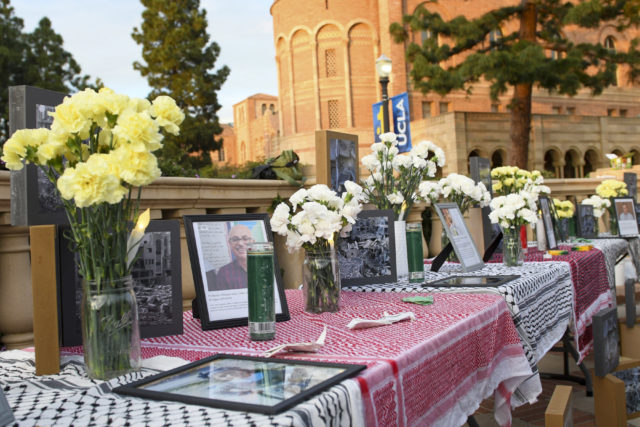

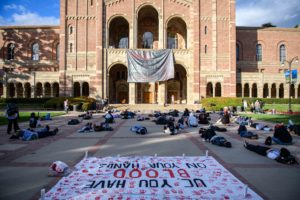
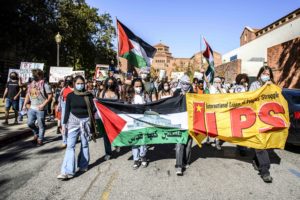
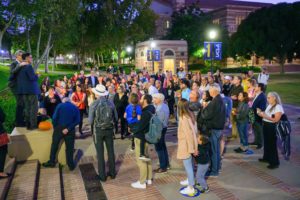
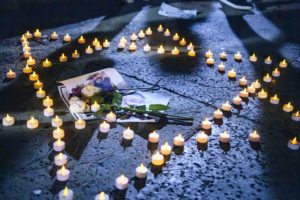
Comments are closed.